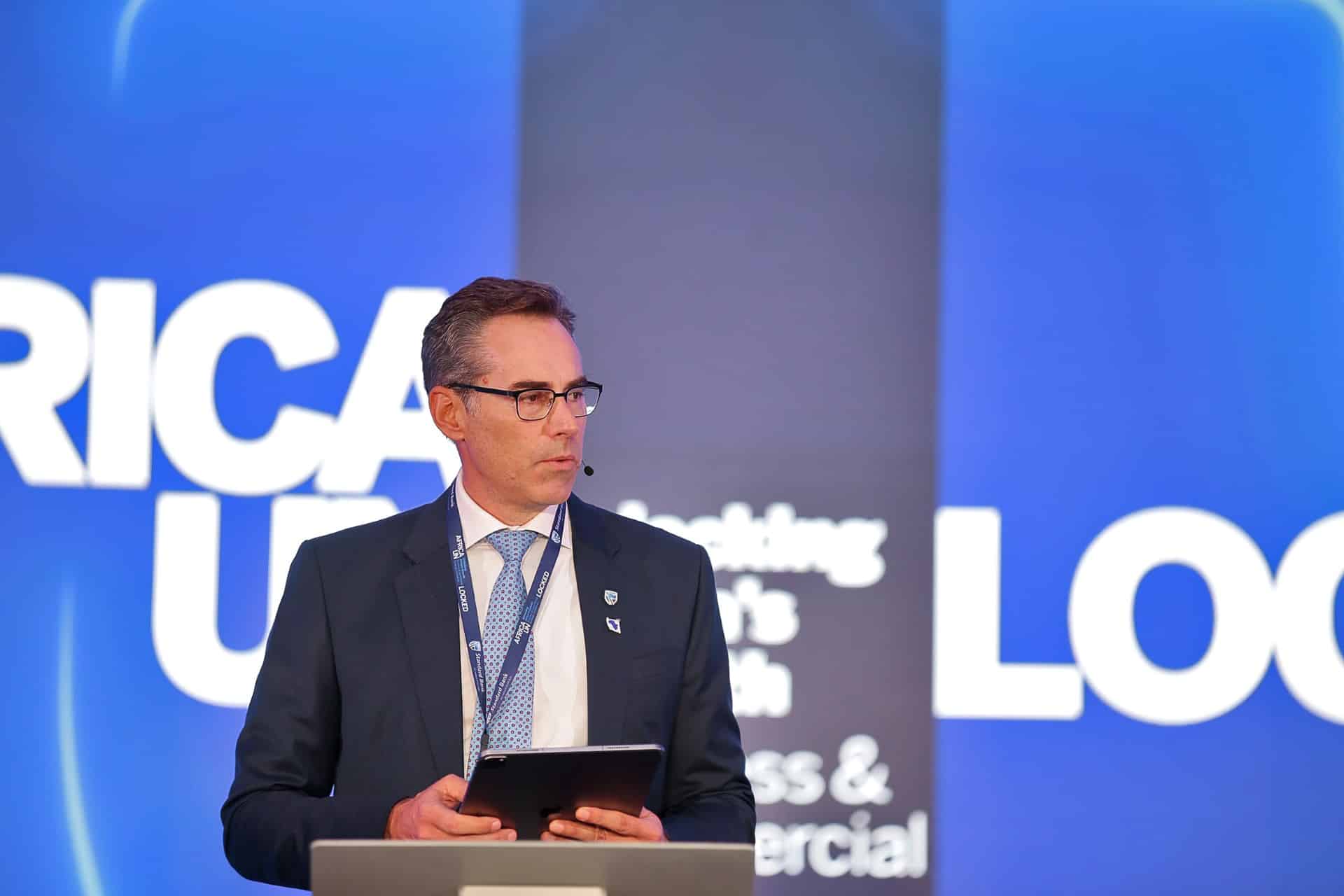
More needs to be done to stimulate the growth of small, medium, and micro enterprises (SMEs), as well as boost intra-African trade, for the continent’s huge potential to be unlocked, Bill Blackie, CEO of Business and Commercial Banking at Standard Bank told over 200 delegates at the inaugural Standard Bank Business and Commercial Banking Conference which took place in Cape Town on 11 and 12 July.
“We see significant opportunities in East Africa in particular,” Blackie said, where growth rates of 5% are predicted for this year. “We believe all the 20 African countries in which the Group has a presence in West, Southern and East Africa have the potential to grow further.”
Afro-optimism
One of the reasons underpinning his optimism is the rapid growth rate predicted for Africa’s population, as well as the fact that Africa has the highest percentage of young people that will bring with it robust and inclusive growth. “However, for us to take advantage of this youth dividend, we need to develop the skills of Africa’s young people,” he added.
Sharing a similarly positive view of the future, Adrian Basson, CEO of Hungry Lion, said Africa’s population is set to quadruple from one billion today to four billion in 2100. “If you ran a fast-food business in Japan, would you want to be operating in a country where the population is set to decline from 120 million to 80 million in the next few decades or would you rather see your customer base grow, as in Africa?” Even though Africans may not have as much discretionary spending, the growth trajectory is in the continent’s favour, he said, especially as most of the population’s growth will be among the working class.
Greater regional integration
On the topic of regional integration, more should be done to spur intra-African trade, which despite the establishment of the African Continental Free Trade Area in 2019, only accounts for 15% of overall trade in Africa, Standard Bank CEO Sim Tshabalala said. “We need to develop a pan-African payment system which will facilitate the movement of goods. It does not make sense to be paying in dollars when businesses can be paying in local currency.”
A firm believer in “action at the speed of thought,” Basson said small- and medium-sized enterprises (SMEs) need to translate their ideas into action more quickly and remove obstacles to innovate. This nimbleness is reflected in the increasing levels of urbanisation among the continent’s population and the shift in demographics in favour of younger people.
As testament to the power of youth, Kenya has recently seen a vibrant youth movement rise and its parliament back-tracking because of the opposition of young voters to a controversial bill which sought to hike taxes, asserted Patrick Mwhierhe, Regional Chief Executive East Africa at the Standard Bank Group. “Young people took to social media to protest, and their voices were heard,” he said. “They were effectively telling government they do not want to be given a job. They just want the government to get out of their way by creating an enabling environment for them to create their own jobs.” This clearly indicates the embodiment of the spirit of a generation poised to redefine the economic future of their nation.
Basson said the next 76 years will be an exciting time to be doing business in Africa. “By 2100, 40% of the world’s population will be African,” he said, “most of whom will be of working age.” This contrasted sharply with other regions like Europe, the US and Asia whose populations by 2100 will be ageing. “There’s no reason why Africa can’t become the economic engine for the rest of the world just as China did,” he said.
Energy and infrastructure
Another reason to be optimistic about Africa’s future is its untapped energy potential, Blackie said, which includes both fossil fuels and renewable energy, such as solar, wind and hydro energy. “We aim to invest R250 billion in renewable energy projects in Africa over the next few years,” he stated. “Without energy, economic growth is not possible, which is why we are focusing on energy and sustainability for growth.”
In addition to removing trade barriers and investing in energy projects, Blackie said Standard Bank was encouraged by the higher levels of infrastructure spending in Africa. “Every country I have visited on the continent recently is spending money on improving infrastructure, be it on improving roads, ports, or airports. This is another fundamental lever for growth.”
Local procurement and SME growth
Africa should focus on getting a greater slice of the global economic pie and conquer its biggest challenge: creating jobs, Basson said. “Rather than figuring out how to move goods across borders, businesses should source local suppliers,” he stated. “In Zambia, 97% of our supplies are locally procured.”
For African economies to grow, SMEs need to flourish, said Simone Cooper, Head of Business and Commercial Banking at Standard Bank. “In the face of significant challenges, SMEs continue to be the backbone of most African economies, accounting for 60% of jobs in sub-Saharan Africa and playing a crucial role in community upliftment.”
Blackie concurred. “As a bank, we act as an intermediator to help finance businesses, but entrepreneurs are what drive economic growth,” he said. “It’s the entrepreneurs who see the gaps, connect the dots and venture where others fear to tread, so that opportunities can be unlocked and converted into tangible possibilities.”

